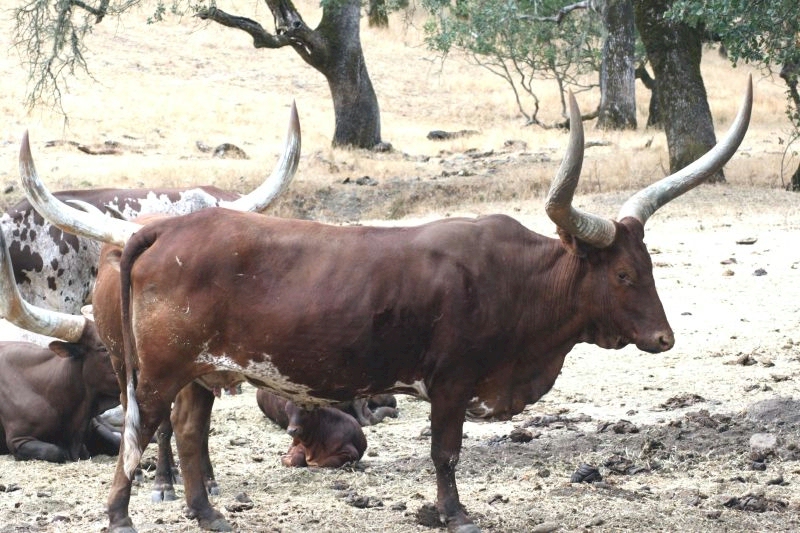 |
|
The term Sanga cattle refers to the indigenous cattle found in sub-Saharan Africa, which are sometimes classified as a subspecies with the scientific name Bos taurus africanus. The origins and history of domestication of these cattle are highly debated and are the subject of extensive discussions and debates among experts. The recent advancements in genetic studies combined with archaeological research, including cultural history, have helped in shedding light on the complex origin of African cattle. African cattle are believed to have descended from aurochs domesticated in the Near East and were introduced to Egypt about 8,000 years ago, from where they spread throughout the Sahara, which was then still green, up to West Africa. North African pastoralists interbred their domestic cattle with wild African aurochs of various regional races, both in the paternal and maternal lines over a long period of time, which is reflected in the genetic distinctness of African cattle from both European/Near Eastern and Indian Zebu cattle. This interbreeding resulted in the development of adaptations to the African climate and conditions, which are now characteristic of African cattle, including Sanga cattle with their Zebu admixture.
It is believed that domesticated cattle were not native to Africa and were brought into the region by cattle pastoralists. The timing of their domestication and introduction into Africa is a matter of debate, with some experts suggesting that cattle may have been domesticated as early as 9000 BP in the region near the Nile and later expanded to the western region of the Sahara. The mitochondrial divergence of undomesticated Indian cattle, European cattle, and African cattle (Bos primigenius) from one another 25,000 BP is seen as evidence supporting the conclusion that cattle may have been domesticated in Northeast Africa. Sanga cattle are believed to have originated in East Africa, probably near the western shores of Lake Victoria, and spread northward along the Nile River, as depicted in Ancient Egyptian murals. These cattle are an intermediate type, likely formed by hybridizing the indigenous humpless cattle with Zebu cattle. However, there is evidence to suggest that they were domesticated independently in Africa, and bloodlines of taurine and Zebu cattle were introduced only within the last few hundred years.
The origin of Sanga cattle in Sub-Saharan Africa is still the subject of debate, with some experts suggesting that domesticated taurine cattle were introduced into North Africa and admixed with undomesticated African cattle, resulting in offspring, including the Egyptian/Sudanese longhorn, some or all of which are viewed as Sanga cattle. Others believe that domesticated African cattle originated in Africa and became regionally diversified, resulting in taurine cattle in North Africa and Zebu cattle in East Africa.
African pastoralists in the Western Desert and northern region of Sudan were managing North African cattle (Bos primigenius) around 10th-9th millennium BCE, and cattle fossils found in a human burial in El Barga in Sudan support this. Genetic evidence, including T1 mitochondrial haplogroup and Y2 haplogroup found in African cattle, suggests that Africans independently domesticated African cattle, splitting early from European cattle (Taurine). The diversity of these haplogroups does not support a bottleneck, meaning a Near Eastern origin for African cattle is not supported.
Content and photo source: Wikipedia.org

